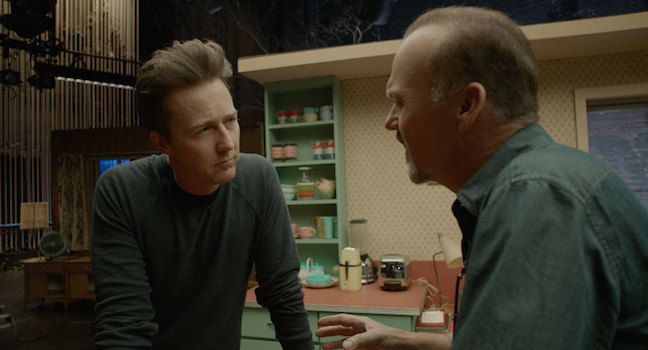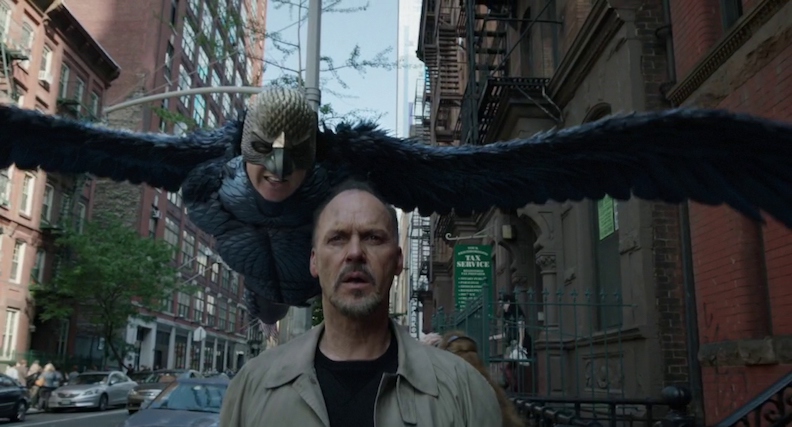“It’s important to me! Alright? Maybe not to you, or your cynical friends whose only ambition is to go viral. But to me… To me… this is – God. This is my career, this is my chance to do some work that actually means something.”
A former superhero movie actor tries to reignite his career with a Broadway adaptation of a Raymond Carver book, but when things don’t go smoothly, his fragile mental state starts to unwind.
Birdman or (The Unexpected Virtue of Ignorance) (2014)
Directed by Alejandro Iñárritu
It’s another great Michael Keaton performance, though a bit different than what he offered in MULTIPLICITY. Here, as actor Riggan Thomson, Keaton plays a little on his career history. Riggan is looking to become relevant again after living the last 20-plus years off the reputation of playing superhero Birdman. Instead of finding a movie role to bring him back to the national spotlight, Thomson decides to write, direct and star in an adaptation of a Raymond Carver book on Broadway. His version of “What We Talk About When We Talk About Love,” though, may as well be MacBeth for everything that goes wrong with the production.

The biggest challenge for Thomson is co-star Mike Shiner (Edward Norton), an accomplished theater actor with a well-earned reputation for being difficult to work with. As Keaton plays off his history with BATMAN, Norton is playing off a reputation he has as an actor for giving his directors and co-stars a hard time. Whether that reputation is true, Norton plays the role beautifully, exuding an obnoxious nature that can even get on the nerves of viewers.
Shiner’s insistence on doing things his way adds to the chaos of the play, which feeds into Thomson’s depression and mental instability. After being associated with the Birdman character for two decades, Thomson allows the character to take over a little too much of himself and putting on this play is his way of trying to take it back. But the superhero is a bit too strong, and the negative opinions about the play overwhelm Thomson’s better angels.
Iñárritu uses magical realism to express Thomson’s inability to differentiate between Birdman and himself. Throughout the movie, Thomson is seen movie things with his mind, meditating while levitating and even flying around the city. The one obvious time the movie clues us in that Thomson may be having a break with reality is when he enters the theater after flying there, and a cabbie runs after him looking for his fare. it’s a brilliant device that leaves viewers guessing as to how reliable the narrator is, and adds to the ambiguousness of the movie’s ending.

BIRDMAN won four Academy Awards in 2015, including Best Picture, Best Director and Best Original Screenplay for Iñárritu, and Best Cinematography for Emmanuel Lubezki, who really made New York City a vital character in the movie. It’s really no surprise the Academy was so taken with the movie, as Hollywood tends to like movies about people who make movies. Throw in the added bonus of perpetuating some negative stereotypes of theater actors and it was pretty well a shoe-in.
That’s not to say BIRDMAN isn’t a good picture, because it is. The script is an amazing examination of a man struggling against losing himself to the myth built up around him, and the character work from Keaton, Norton and Emma Stone, who play’s Thomson’s daughter, Sam, helps to elevate the film into something great. Iñárritu’s unique visual style of scenes seamlessly bleeding into each other and the movie’s percussion score make the film’s presentation stand out from other films. That alone should make this a must-watch for anyone who appreciates unique takes on filmmaking.
